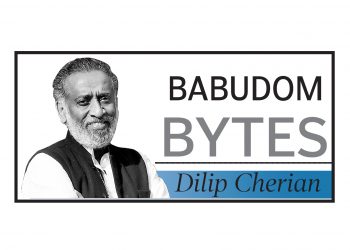Another week, another scam. This time, it’s 15 civil servants now under the scanner for allegedly faking their way into coveted IAS, IPS, IFS and IRS posts using bogus reservation claims. The Department of Personnel and Training (DoPT) has finally stirred, launching an inquiry after persistent complaints, many filed by RTI activist Vijay Kumbhar, pointed to misuse of caste, EWS, and disability certificates. And these aren’t minor goof-ups. Some officers are suspected of faking PwBD (disability) status, others of falsely claiming SC, ST or OBC credentials to game the UPSC. And this isn’t a one-off. Readers will not have forgotten Puja Khedkar from Maharashtra. The ‘IAS officer’ with the Audi and security detail who turned out to have a talent for forging not just caste and disability certificates, but entire bureaucratic narratives? The real question isn’t just how this happened, but how often it’s happening undetected. If UPSC and state governments aren’t cross-verifying certificates before appointments, what’s the point of elaborate eligibility criteria? Reservation is meant to level the playing field, not turn into a back door for the well-connected and resourceful. If civil services are being quietly infiltrated by fraud, trust in the system crumbles, for both citizens and genuinely marginalised aspirants. Transparency, real-time verification, and serious consequences are what are needed urgently. Because if those at the top can scam the system, what hope do the rest of us have?
The never-ending auditions for UP’s top cop
In Uttar Pradesh, being police chief has become less of a career pinnacle and more of a recurring guest role — glamorous, yes, but strictly “acting only.” Rajiv Krishna, a respected 1991-batch IPS offi cer, is the latest to don the DGP badge. He replaces Prashant Kumar, who retired on May 31 after a headline-heavy tenure marked by gallantry medals and more than 300 “encounters.” Speculation of Kumar’s extension swirled for weeks. Still, the government kept mum — no offi cial panel sent to the UPSC, no selection committee under state rules, just silence, then a quiet handover. Sound familiar? It should. Krishna is now the fi fth acting DGP since 2022. At this point, the title should come with a folding chair and a one-year calendar! Never mind that the Supreme Court laid down clear norms for DGP selection — you know, transparency, merit, due process. In UP, it seems those rules are more like guidelines. An acting DGP offers some thing a permanent one doesn’t: fl exibility. Or to put it plainly, control. So here we are again — another senior cop in the hot seat, another procedural shrug from the corridors of power. Forget permanence. In UP, the most secure thing about the DGP post is how insecure it’s meant to be.
Haryana’s IAS move hits UPSC wall
Haryana’s bid to fast-track 27 state civil service officers into the IAS didn’t go as planned. The move has just hit a serious roadblock, courtesy of the UPSC. And the timing couldn’t be worse — the state’s already running short on IAS officers. At the heart of the issue are pending criminal charges against at least eight of the officers shortlisted for promotion. And we’re not talking minor disciplinary notes. These are full-blown charge sheets filed in court. Yet, the state hoped to sneak past that little detail, arguing that a charge sheet doesn’t count as a final report under Section 173 of the CrPC. Nice try, but the UPSC wasn’t convinced. The state tried to argue that a mere chargesheet isn’t the same as a final report under Section 173 of the CrPC — and therefore, not enough to derail someone’s promotion. But the UPSC wasn’t buying it. It called the argument “legally not tenable” and sent the whole list back, asking Haryana to come up with a cleaner version — one without the baggage of unresolved legal trouble. Unfortunately, even the officers with no cases against them are stuck in limbo. It’s all or nothing, it seems. This adds to Haryana’s IAS headache. The state needs 215 officers, but has only 171. That’s a big gap, and one that can’t be filled with murky selections or half-baked legal reasoning. And clearly, UPSC’s not in the mood to let anyone slip through it with a cloud over their head.
Dilip Cherian
